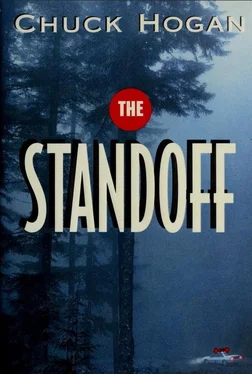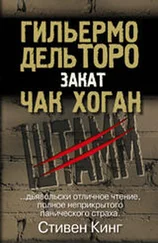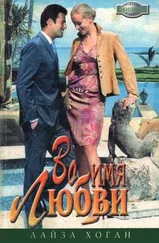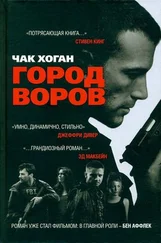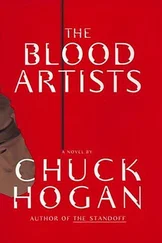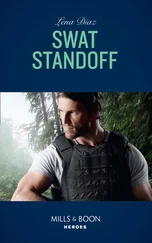Being sprung from that solitude had at first been disorienting, but since arriving on the mountain he felt that he had met each task head-on, managing to adopt a fair shadow of his former working persona. He had picked up all the familiar scents. He was able to function again and recall a detached sort of familiarity, like a dog stumbling upon a forgotten yard, digging for old bones. But he was untested and he knew it. There was, behind every action, the desperate possibility that something crucial or obvious might somehow slip past him. And a certain paranoia he was aware of, a voice muttering in his ear, that was fed by the vacuum of silence from D.C. And above all that, the hope that the call would come relieving him of responsibility, returning him to Skull Valley. But by taking one step back from himself, he was able to keep all this in check.
There was always the concern, however, that the gauge itself might be faulty. That in these steadying self-evaluations, his reason might fail to police itself accurately, and like a man stopping to take his pulse and coming away satisfied, not knowing his second hand was slow, Banish could himself be deceived.
His methods so far seemed to him sound. There was no set play book for hostage negotiation. There were strategies and there were tactics, but no methodology. Each situation was its own. The negotiator worked to isolate the suspect while at the same time setting himself in a position to wait, psychologically starving out the individual, as here, where Ables had effectively been placed under house arrest. Then the negotiator was left to his own devices. In the days when he was still considered an expert on the subject, in his lectures on tradecraft at the FBI Academy at Quantico, Virginia, Banish had likened the role of Chief Hostage Negotiator to that of a man trying to adjust a roof antenna by himself. You position the antenna, he would tell the trainees, then climb off the roof to check the progress of its reception, then go back up and try something else entirely different again. The analogy made sense in the days when cable television was just a dream and satellite dishes were fifty feet wide. When he was still one of the Young Turks at the Bureau, the best and the brightest who would reestablish the FBI as the world’s preeminent law enforcement agency in the post-Vietnam, post-Watergate, antigovernment era. When he was still a family man with a wife and daughter, which had guaranteed that he would never have to adjust a roof antenna alone.
He returned to the work on his desk. The stacks of bound reports and memos and requisition authorizations were like rocks he could hang on to. They were real things he could touch and move with his hands.
These were the idle hours. The stasis when anxiety battled reason and when mistakes were most often made. The downtime that sapped men’s spirits. Even unfavorable developments were more welcome. They at least demanded some form of action. Frustration was the hostage negotiator’s enemy. Purgatory was hell.
He reinitialed the disclosure sheet he had authored detailing Perkins guidelines for that morning’s press conference, including a formal three-paragraph press release and an annotated cheat sheet of responses to anticipated questions. He was reviewing the marshals’ watch summaries for the previous day when he heard laughter coming from outside his office.
Something about it bothered him. When he heard the laughter again, he set down his pen and went out through the canvas flap door into the greater command tent. The agents there were busy at desks littered with soda cans and coffee cups and plastic junk food wrappers from the snacks the supply trucks had brought in. The switchboard desk telephones and the telex and fax machines were up and running. One agent was logging reports into a computer; another, issuing orders over the radio. Only Coyle’s chair near the front was empty.
To Banish’s right, in the corner near the small utility refrigerator, two Montana state policemen stood engaged in casual conversation, laughing and drinking out of two tall cans of doped Pabst Blue Ribbon.
Banish saw red. He exploded at the stunned men, grabbing their arms and propelling them out of the tent and into the bright light of morning. He emptied the cans there, the smell of the beer salting his nose, then he dressed down the Statics, and then Coyle, who arrived in the middle of it with a cup of coffee in her hand. By the time he was through with her, the Statics had gotten up on their hind legs.
“Look,” one said, “we just come off a twelve-hour shift.”
Banish said sharply, “No one goes off-duty on this mountain.”
The other said, “So you guys in there get cold ones, but not the men out here doing the real work?”
Banish looked down at the dark puddles the beer made in the dirt, the foam along the edges clinging to stray weeds. The beer smell wafting up. His head started to swim. He looked around and noticed a familiar face among the people standing nearby. “Kearney,” he barked.
The cop looked startled. “Yes sir,” he said, coming over.
Banish had to fight to keep himself from yelling. “These two imbeciles are dismissed. I want you personally to see them off the mountain and back to their barracks.”
Kearney nodded without question and went off alongside the disgusted troopers.
Banish turned back to Coyle. “Do you have a hearing problem, Agent Coyle?” he said.
Coyle said, “No, sir.”
“Do you have a problem following orders?”
“No, sir.”
“Well, I don’t know who put you in charge of this command tent, but if I have to give one more order twice around here, HEADS WILL ROLL. DO YOU UNDERSTAND ME?”
“Yes, sir.”
“WAS THERE ANY PART OF THAT YOU DID NOT UNDERSTAND?”
Coyle swallowed and shook her head. “No, sir,” she said.
Banish was nodding. He knew his voice had gotten away from him. He was losing control. He looked to the command tent as a place of refuge. Agents watching from the entrance disappeared back inside. Banish turned and walked off in the opposite direction across the clearing. Men who had stopped there to stare now hustled out of his way.
He was getting away from the smell. The smell of the beer was so thick he could nearly taste it, and if he could taste it, then he could swallow it, so he was getting away from that. He was breathing clean air. It smelled of diesel fuel and exhaust, but it tasted clean, because it did not tempt his immense thirst.
He came to the sound truck and knocked twice. The agent inside, the sound man, whatever his name was, slid the door open. Rap music beat tinnily from the headphones hanging around his neck. He stepped back to allow Banish inside.
“Anything?” Banish asked.
The sound man shook his head. “Nothing.”
Banish did not nod. If there had been any activity whatsoever from the cabin, he would of course have been notified immediately. It was a senseless question. He sat down in the chair nearest the open door. It creaked under him.
The sound man took the other chair. He was quiet, waiting for the senior agent to say something. He tapped two fingers on his fold-down desktop. Finally he came out with what was on his mind. “Why haven’t they answered?” he said.
Banish’s eyes were closed. His head was bowed. He just shook his head.
After a while the tin music became muffled as the sound man put his headphones back on. Banish opened his eyes and looked up. Surveillance cameras had been installed overnight, the monitor bank on the panel above the sound man’s head showing six different scenes in flickering black and white. It took Banish a moment to place each location: the cabin from three strategic angles, one head-on through the trees in front, and two wider pictures more than forty-five degrees each way; a wide view of the bridge and the crowd of protesters at the foot of the mountain; a section of empty road leading up the mountainside; and a high, wide overview of the staging area itself.
Читать дальше
